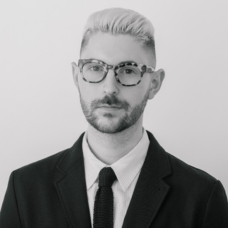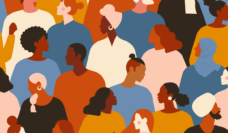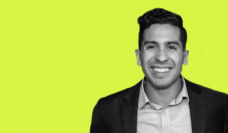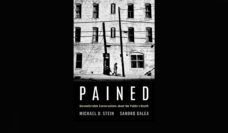Public Health Post: You are running for City Council in New York City to represent Harlem. How do you see the relationship between politics and public health?
Mario Rosser: At the end of the day, politics is simply what we decide to do together collectively. As far as public health is concerned, it goes without saying that the past year has demonstrated the worst possible outcomes imaginable when collective action is neither courageous nor caring enough. Mismanaged politics has literally cost us millions of lives. My neighborhood, Harlem NYC, saw a disproportionate level of fatalities as the pandemic ravaged our city, driven by long-standing vulnerabilities shaped by an insufficient commitment to racial equity in our politics. In order to see better public health outcomes, we must commit to a politics of compassion.
The country is celebrating Black History Month in February, and this past year has indeed been historical: the murder of George Floyd, the election of Vice President Kamala Harris. In which ways have you seen the health of the Black community change in 2020 and 2021?
By the numbers, the past year has been devastating to the health of the Black community. People who should still be alive today are no longer with us due to a politics of selfishness. The rate at which our elders in particular have passed on has been a living nightmare. Furthermore, a less discussed issue is the mental health toll that the seemingly endless fight against police brutality takes via pressuring humans who happen to be Black, into 24/7 social justice activism. Black folks want to relax too, but generally don’t have that luxury and its been showing in terms of mental health distress. Despite all the above, Black American culture is experienced in resiliency and that is carrying us onward.
There are a number of threats to the health of Black communities: Covid-19, guns, food insecurity, HIV, white supremacy, chronic disease. What would be your public health policy proposals if you are elected to City Council?
I’ll mention three actions that I’ll advocate for: (1) championing funding and resources for holistic approach programs to neighborhood nutritional improvement; (2) adjusting MetroPlusHealth insurance (NYC’s public health insurance option) eligibility requirements to cover more people; and (3) protecting funding to NYC’s public hospitals, a crucial care option for people in my neighborhood which has experienced significant service cuts in recent years.
Harlem has been a historically Black neighborhood since the Great Migration. Your grandparents migrated from the Jim Crow South to escape anti-Black racism and build lives beyond picking cotton. As you campaign 75 years since your family moved, what stories do you hear from your constituents about the need to improve the health of their communities?
I hear stories about lack of access to healthcare and tiring maneuvers through the labyrinthine health insurance bureaucracy. I hear stories about entire families dealing with hypertension, diabetes, and the lack of affordable healthy food options. My heritage certainly provides inspiration to keep building a better reality for everyone in our community, building on how far we’ve come as a people.
How do cities physically contribute to or detract from the health of citizens?
One of the key developments of this past year, is greater awareness regarding the links between space and health. Whether it’s the water we drink, air we breathe, or many other realities, urban planning totally impacts public health, for better or worse.
Photo courtesy of Mario Rosser














